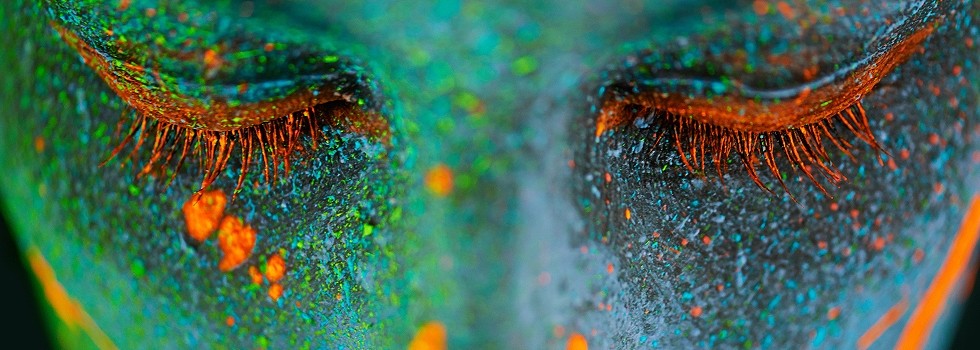Promotional Features
The skin microbiome and beauty: changing perceptions of bacteria
Mention the word “microbiome” and most people will think first of the digestive system. In health and nutrition circles this has been a key topic for decades, and the trend for foods that act on bacteria in the gut is well established.
The skin also has its own unique ecosystem of microbiota which changes throughout a person’s lifetime according to their age, diet, environment and lifestyle. We know that balance in the gut microbiome contributes to overall wellness, including skin health, but does the skin’s own unique ecosystem also has an impact on its appearance and feel? Scientists, dermatologists and beauty brands have been giving the matter serious consideration in recent months and consumers are also starting to want to know more.
The trend for “healthy beauty”
Interest in the skin microbiome reflects a broader trend for “healthy beauty”. In the digital age, people have all the tools they need at their fingertips to monitor, maintain and improve their health. As an outcome, they are increasingly taking their health care needs into their own hands and paying attention to the impact lifestyle, physical activities and nutrition have on their looks and wellbeing.
With new scientific discoveries challenging accepted views about bacteria in relation to health in general, it is not surprising that people are considering the implications for their skin. DSM prides itself on identifying and keeping pace with current trends, so decided to conduct both original scientific research and proprietary consumer studies on the skin microbiome.
For a general market overview, and to identify key themes arising in conversations about the skin microbiome, researchers “listened in” on English-speaking social media, engaged with beauty bloggers to understand the perspective of the influencers and took an in-depth look at some of the names currently offering microbiome-related products.
An evolving narrative
In the past, microbes have been thought of as something that should be removed from the skin but this view is beginning to change. The scientific community and skincare brands are currently leading the conversation but DSM’s consumer research found that beauty influencers are receptive to the idea of the skin as a living ecosystem. They appear excited about trialing new regimes to promote balance in the skin microbiome and can see how this supports broader, natural or holistic beauty trends. Regular consumers are somewhat reticent as the idea of bacteria as “bad” still dominates. However, a growing number of online discussions suggest that new product launches have piqued curiosity. To harness this enthusiasm, the beauty industry needs to offer simple explanations about what the skin microbiome is, why it is relevant to specific skincare concerns and which products work and how.
Microbiome beauty - the landscape today
Analysis of the skincare market has highlighted four approaches to microbiome beauty:
- Removing bacteria: this approach is long established and commonplace in mainstream cleansers and spot treatments, typically aimed at teenagers and people with acne-prone skin.
- Prebiotic: this approach focuses on feeding “good” bacteria. It is typically used in products such as cleansers and fits with a narrative of gentle, natural skincare.
- Probiotic: this approach focuses on adding “good” bacteria (extracts rather than live cultures). Consumers are likely to be familiar with probiotics in relation to gut health and live dairy products. Several beauty brands champion this approach and influencers see it as something new and different.
- Postbiotic: this approach involves adding by-products of bacteria. They are usually combined with pre- or probiotic treatments, although a few postbiotics, such as hyaluronic acid, are already known in their own right.
Brands currently offering products are generally focused on prebiotic and probiotic solutions. Some take a scientific stance with products designed to address specific concerns and benefits, such as reducing wrinkles. Others place the emphasis on nature, overall skin health, holistic lifestyles and green beauty. From microbiome-friendly cleansers and moisturizers, to microbiome-enhancing probiotic mists and serums, there is plenty of opportunity for innovation and to redefine or reposition established products.
Bacteria and beyond – a unique approach to epidermal care
Even bacteria considered to be “good” can become harmful in some conditions and the skin microbiome is still very much uncharted territory. DSM is therefore combining its expertise in microbiology and epidermal bioactives to carry out cutting-edge research. Recent studies have tended to focus on identifying bacteria on the skin but new research will seek to understand more about the conditions in which microbes are either beneficial or harmful to the skin, what triggers imbalances in the skin flora and how to rebalance these. It will also look at how some of the less usual strains of bacteria in the skin microbiome affect the skin’s appearance.
DSM’s new research combines its current and already well-established research on epidermal care, known as CORNEOCARE with a novel approach to the skin microbiome which it has coined “Epibiotic”. Its approach is built on the belief that a strong epidermal barrier and balanced skin microbiome are both needed to restore, strengthen and preserve beautiful skin. This is because the epidermis both provides the environment in which microbes thrive and acts as a barrier, protecting the body against bacterial infiltration. By focusing on the interaction of microbiota on facial skin and the scalp, and supporting biological processes in the epidermis, it is possible to build a balanced and strong epidermal barrier to achieve a fresh, vibrant complexion or a hydrated, comfortable scalp.
Creating the right environment for beautiful skin
Scientists have already made encouraging discoveries about two of DSM’s well-established actives, available in ready-to-use formulations:
SYN-UP, a unique peptide derivative, boosts skin barrier strength by rebalancing plasmin levels and promoting a harmonious interaction between the epidermis and skin microbiome. At microbe level, it has been shown in-vitro to act directly on Staphylococcus aureus, reducing levels of the bacteria, and at molecule level, it has been shown to reversibly inhibit the serine proteases urokinase and plasmin. In-vivo studies back up the benefits of this action: after 29 days of using the peptide, volunteers showed a significant improvement in skin resilience, smoothness and hydration and reported reduced skin sensitivity.
The skin microbiome also has an impact on scalp condition because microbial infiltration can lead to inflammation in the epidermis at the hair shaft, weakening the skin barrier and exacerbating flaking skin here. In vitro tests have shown that PENTAVITIN, a unique, skin-identical carbohydrate complex, can balance microbial activity in the scalp barrier by influencing the equilibrium of species such as Malassezia furfur and Staphylococcus epidermidis in the scalp microbiome. The benefits of this are reduced dryness and irritation. Consumer test panels confirm that PENTAVITIN reduces flakiness and itchiness caused by dehydration, leaving the scalp softer, smoother, hydrated and more resilient.
DSM’s investigations have only just begun but the company is committed to staying at the forefront of understanding about the skin microbiome. These early results are promising. By leading the way with new research, engaging with consumer and through constant innovation, DSM is continuing to develop cosmetic solutions to promote skin health and stimulate the skin’s natural defenses – a benefit for consumers and producers alike.




